Luiz Carlos Lacerda
出生 : 1945-07-15, Rio de Janeiro, Rio de Janeiro, Brazil

Director
A tribute to Pier Paolo Pasolini's centenary. The film tells of his visit to Rio de Janeiro in 1970, returning from Argentina in the company of singer Maria Callas, when he met the young soldier Joaquim.

Coordinating Producer

Director
An encounter of novelist Lúcio Cardoso and poet Murilo Mendes haunting ghosts with their characters.
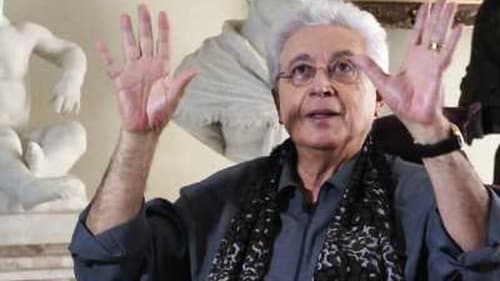
Himself
Inspired by the US paper “Gay Sunshine”, in April of 1978 appeared in Brazil – during the dictatorship – the newspaper “O Lampião”, depicting the point of view of gays on various issues, including sexuality. A group of journalists and writers from Rio de Janeiro and São Paulo joined the project, fueling a publication that paved the way for the press at the time, addressing controversial issues at the period, such as racism, abortion, drugs and prostitution.
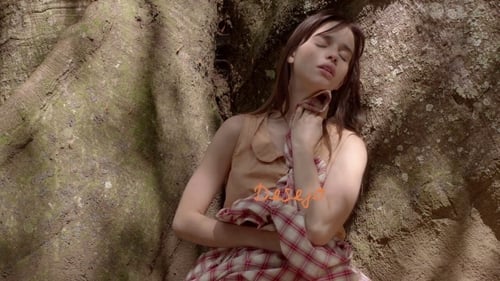
Screenplay
In the interior of Brazil, between the archaic and the contemporary world, a family lives its anguish in an atmosphere of desire and repression. Based on an argument by a master of the psychological introspection novel, the writer Lucio Cardoso.

Director
In the interior of Brazil, between the archaic and the contemporary world, a family lives its anguish in an atmosphere of desire and repression. Based on an argument by a master of the psychological introspection novel, the writer Lucio Cardoso.

Director
Poetic reconstruction of the unfinished film, directed by writer Lúcio Cardoso, from Minas Gerais, in 1949, in the fishing village of Itaipu / Niterói, based on recovered scenes and excerpts from the film diary. The documentary shows the process of a writer struggling with the desire to make a film.

Writer
In the 1970s, in the midst of a military dictatorship, composer Jards Macalé and filmmaker Luiz Carlos Lacerda (Bigode) shared a house in Rio de Janeiro - which became a center of convergence for musicians, filmmakers and writers, and where they performed classic films and songs of Brazilian culture.

Director
In the 1970s, in the midst of a military dictatorship, composer Jards Macalé and filmmaker Luiz Carlos Lacerda (Bigode) shared a house in Rio de Janeiro - which became a center of convergence for musicians, filmmakers and writers, and where they performed classic films and songs of Brazilian culture.

Director

Director
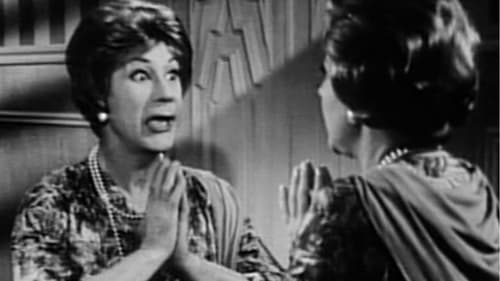
Himself
Cinema in 7 Colors traces an historical panorama of how the queer people were portrayed in the Brazilian silver screens, from its origin in the chanchadas of the 1950s up to the present day. The film investigates the origins of the prejudices, stereotypes, as well as the importance of the identification with constructive representations of these characters.
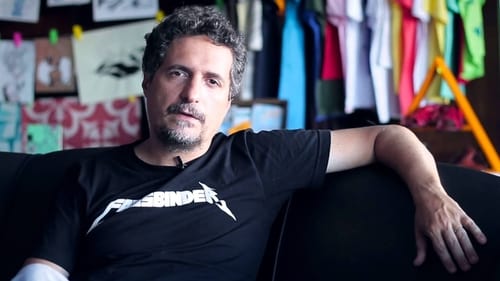
Self
Seventy critics and filmmakers discuss cinema around the conflict between the artist and the observer, the creator and the critic. Between 1998 and 2007, Kléber Mendonça Filho recorded testimonies about this relationship in Brazil, the United States and Europe, based on his experience as a critic.
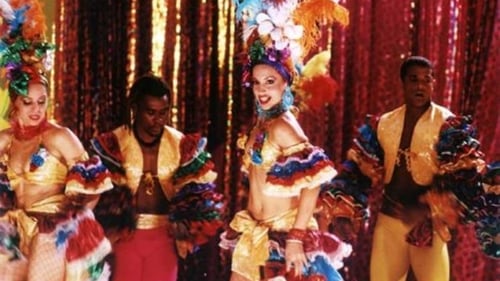
Writer
A light-hearted and high-spirited story, full of spice, sensuality and romance, Viva Zapato tells the tale of Dolores, a beautiful Cuban dancer who decides to leave her failing marriage and open a restaurant by the beach with her aunt from Brazil. When her aunt sends her a pair of shoes instead of the money to start up the restaurant, she angrily sells the useless gift for spare change. Her dream fades away - until she discovers that the money was hidden in the heel. The zany search for the shoes begins, as she follows the footsteps through the lively streets of Havana, running into the quirky, colorful characters that bring Viva Zapato and Dolores' dream.

Director
A light-hearted and high-spirited story, full of spice, sensuality and romance, Viva Zapato tells the tale of Dolores, a beautiful Cuban dancer who decides to leave her failing marriage and open a restaurant by the beach with her aunt from Brazil. When her aunt sends her a pair of shoes instead of the money to start up the restaurant, she angrily sells the useless gift for spare change. Her dream fades away - until she discovers that the money was hidden in the heel. The zany search for the shoes begins, as she follows the footsteps through the lively streets of Havana, running into the quirky, colorful characters that bring Viva Zapato and Dolores' dream.

Screenplay
Writer and poet Clarice Lispector investigates and develops the old question of what came first, the egg or the chicken.

Director
Documentary about the work of photographer Alair Gomes, one of the first artists to introduce male nudity in Brazilian photography.

Producer
1943, World War II. The northeastern coast of Brazil is an strategic region for the Allies. Giancarlo, an Italian immigrant married to a Brazilian woman, lives nearby the Parnamirin Field, the largest military base built by the USA outside of their territory. In this new base, Brazilian recruits who speak English suddenly find themselves reaching privileged positions.

Writer
1943, World War II. The northeastern coast of Brazil is an strategic region for the Allies. Giancarlo, an Italian immigrant married to a Brazilian woman, lives nearby the Parnamirin Field, the largest military base built by the USA outside of their territory. In this new base, Brazilian recruits who speak English suddenly find themselves reaching privileged positions.

Director
1943, World War II. The northeastern coast of Brazil is an strategic region for the Allies. Giancarlo, an Italian immigrant married to a Brazilian woman, lives nearby the Parnamirin Field, the largest military base built by the USA outside of their territory. In this new base, Brazilian recruits who speak English suddenly find themselves reaching privileged positions.

Producer
The movie shows the life of brazilian actress Leila Diniz, who dies in a plane crash.

Writer
The movie shows the life of brazilian actress Leila Diniz, who dies in a plane crash.

Director
The movie shows the life of brazilian actress Leila Diniz, who dies in a plane crash.

Production Director
Biography of Brazilian congressman Tenório Cavalcanti, who used to appear in public carrying a machine-gun, and wearing a black cloak.
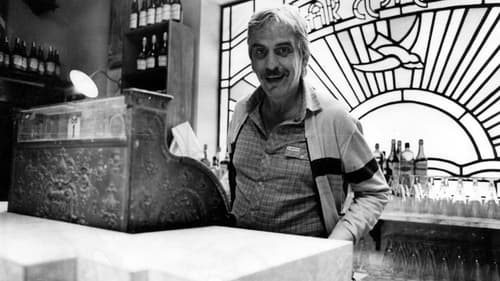
Production Manager
A group of eccentric people gather at a popular bar in Ipanema, Rio de Janeiro. Among its costumers, we find Ana, an actress, and her husband Zeca, a writer in crisis about his work.

Producer
A group of eccentric people gather at a popular bar in Ipanema, Rio de Janeiro. Among its costumers, we find Ana, an actress, and her husband Zeca, a writer in crisis about his work.

Director

Bicha da Lapa
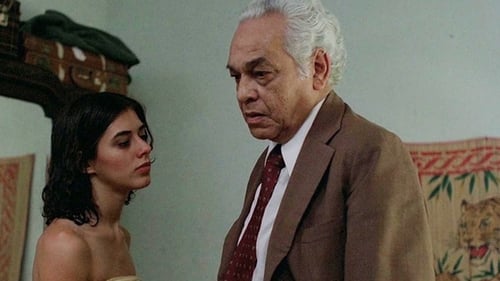
Production Manager
Rio de Janeiro police investigator Galvão is pursuing two trails, one professional and one personal. While he tracts a serial killer of taxi-drivers, he also seeks his estranged daughter, Sandra, who he had thrown out of the family home when she adopted a promiscuous teenage lifestyle. Lives intersect when the serial killer, Toninho, a young man of unsavoury connections, befriends Sandra, now an exotic dancer and prostitute living and working in the seamy underside of late 1970s Rio.

Producer
In a financially troubled farm in the 1930's, its depraved owners become attracted to their new handsome and young handyman.

Writer
In a financially troubled farm in the 1930's, its depraved owners become attracted to their new handsome and young handyman.

In 1970, the Esquadrão da Morte (Death Squad)' crimes for the refinement of violence provoked a wave of reactions throughout the country. The photos of the victims, adorned by the skull, symbol of the group, caused an uncomfortable indignation. This is the story of Mateus Romeiro, the most famous of the policemen, who was part of the Homens de Aço (Steelmen) group, one of the factions in which the squadron was divided.

Director
In a financially troubled farm in the 1930's, its depraved owners become attracted to their new handsome and young handyman.
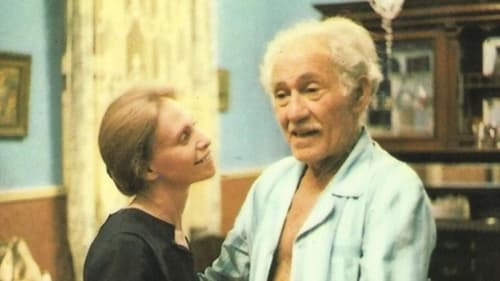
Production Manager
70-year-old widower living in a poor Rio de Janeiro suburb falls in love again when he finds a woman of approximately the same age.

Director

This adaptation of a classic Brazilian novel focuses on the relations of charismatic characters within a tenement.

Madame Moustache
A true friendship develops between Jojô, a prostitute Rosa, and the young Eduardo, who survive on the streets of Rio de Janeiro. Everything goes well until ambition takes over the trio, causing friends to aim for bigger goals, planning a big assault that could cost them their lives.
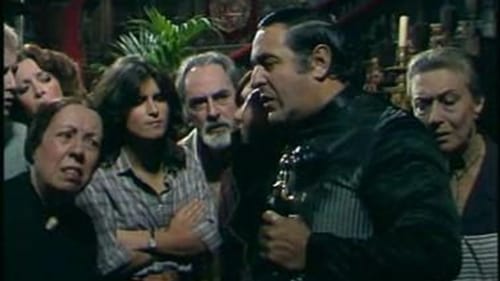
Recepcionista
Tadeu, a poor lad from the Northeast of Brazil, comes to Rio de Janeiro to try his luck. His good looks and education win him the favor of rich people. In his spare time, he becomes the favorite among lonely and rich ladies. Soon he gets involved in trouble.

Production Director
In the 17th century, to guarantee the possession of the region, disputed with Spanish and Dutch pirates, the Portuguese built a fort at the point where the dark waters of the Rio Negro meet the clear waters of the Rio Solimões, forming the Amazon River. Around the fort, the city of Manaus was born. Alli lived the Manaús Indians, warriors who worshiped Manari, the Good, and from him they received the order to fight all the invaders of the forest.

Self
A documentary that presents home movies and several excerpts of known films of famous actress Leila Diniz. Friends of the late actress, tragic killed on a plane crash in 1972, discuss about her life, her work and her legacy in Brazilian culture.

An ubiquitous folk singer narrates the tale of a young boy, who apparently becomes immune to gunfire after his mother arranges for him to have an amulet bearing Ogum's blessings. As time goes by, he becomes a valuable member of a mobster's hit-team, but ends up joining a group of people who resist his original employers.

Production Design
An ubiquitous folk singer narrates the tale of a young boy, who apparently becomes immune to gunfire after his mother arranges for him to have an amulet bearing Ogum's blessings. As time goes by, he becomes a valuable member of a mobster's hit-team, but ends up joining a group of people who resist his original employers.

Director

Writer

Director

Assistant Director
Brazil, 1594. The Tupinambás natives are friends of the French and their enemies are the Tupiniquins, friends of the Portuguese. A Frenchman is captured by the Tupinambás, and in spite of his trial to convince them that he is French, they believe he is Portuguese. The Frenchman becomes their slave, and maritally lives with Seboipepe.

Capitão francês
Brazil, 1594. The Tupinambás natives are friends of the French and their enemies are the Tupiniquins, friends of the Portuguese. A Frenchman is captured by the Tupinambás, and in spite of his trial to convince them that he is French, they believe he is Portuguese. The Frenchman becomes their slave, and maritally lives with Seboipepe.
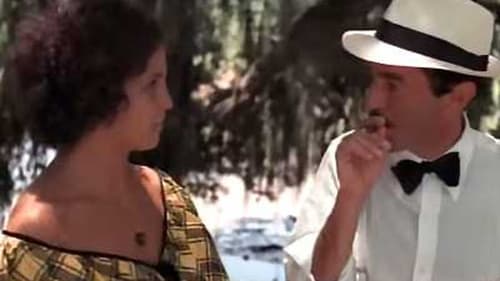
Screenplay
In a small town in the State of Minas Gerais, Brazil, a woman rebels against local morality after her child dies, with tragic results.

Director

Director
In a small town in the State of Minas Gerais, Brazil, a woman rebels against local morality after her child dies, with tragic results.

Father Simão Bacamarte arrives in the small town of Serafim to investigate a certain phenomenon of madness.

Assistant Director
Couple of lovers want to steal the income of a popular soccer game, at Maracanã Stadium, in Rio de Janeiro.

Director

Director

Assistant Director
A shockingly irreverent follow-up to the rural austerity of Barren Lives, dos Santos’ Godardian social satire owes more than a nod to the self-conscious antics of the French New Wave. The pampered son of a general, El Justicero is a hipster playboy who fancies himself a James Bond/Jean Paul Sartre urban hero. “Archetypical” yet “full of contradictions,” he sees that justice is achieved for the disadvantaged while taking advantage of certain bourgeois perks. His exploits are closely followed and eventually directed by his biographer who decides a film is not only more lucrative than a book, but it gives him the luxury of reviewing previous scenes. Unlike Bond, El Jus eventually experiences an awakening which threatens to compromise the entertainment value and glamour of his life story. - Harvard Film Archive







































